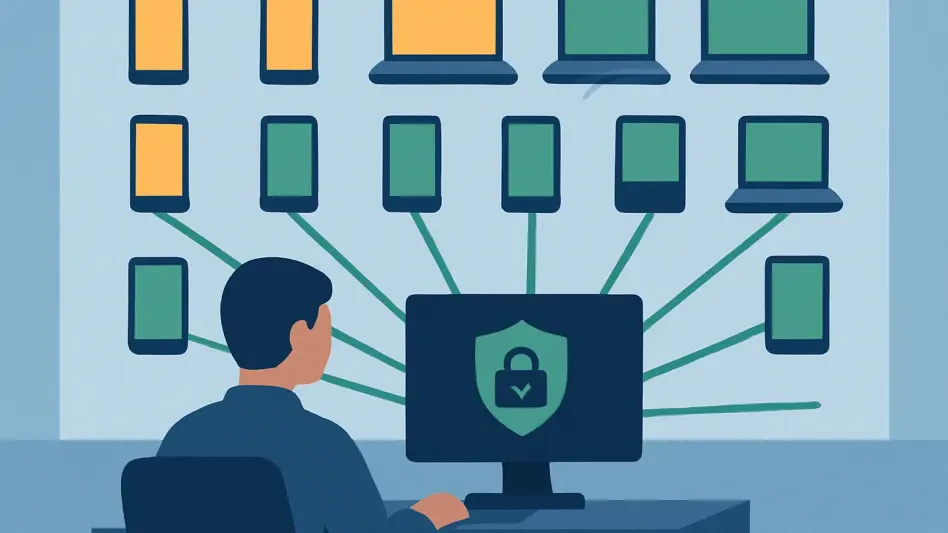What happens when the digital backbone of global business faces relentless cyber threats, and the only way to protect it is to invite the world’s best hackers to break it first? A staggering 82% of data breaches in recent years involved cloud environments, according to industry reports, exposing a critical vulnerability in modern infrastructure that demands urgent action. This alarming reality sets the stage for an unprecedented initiative by cloud security firm Wiz, in collaboration with tech titans AWS, Google Cloud, and Microsoft. With a $4.5 million prize pool, this bold hacking competition challenges ethical hackers to uncover flaws before malicious actors can exploit them. The stakes couldn’t be higher as cloud technology underpins everything from online banking to healthcare systems.
A Daring Call to Hackers: Break the Unbreakable Cloud
The competition, hosted by Wiz, throws down a gauntlet to security researchers worldwide: penetrate the most widely used cloud software and expose its weaknesses. This isn’t a game of chance but a calculated effort to safeguard the digital economy. Participants are tasked with finding critical exploits in systems that millions rely on daily, with the event culminating in live demonstrations at Black Hat Europe in London on December 10-11. Submissions must be received by December 1, ensuring a tight race against time.
Beyond the thrill of the challenge, this initiative underscores a pivotal truth—cybersecurity is no longer just about defense but about preemptive action. With the average cost of a data breach hovering at $4.45 million, as reported by IBM, the financial and reputational damage of inaction is catastrophic. By incentivizing ethical hackers with substantial rewards, the contest aims to turn potential threats into fortified defenses, protecting businesses and consumers alike.
The collaboration between Wiz and industry giants like AWS, Google Cloud, and Microsoft amplifies the significance of this event. Their combined expertise and resources signal a unified front against cybercrime, aiming to redefine how vulnerabilities are identified and addressed. This partnership also reflects a growing trend of leveraging collective intelligence to tackle complex security challenges in an interconnected world.
Cloud Security: The Critical Frontier of Cybersecurity
Cloud platforms have become the lifeblood of modern enterprises, hosting everything from sensitive customer data to proprietary algorithms. However, this migration has made them prime targets for cybercriminals, with attacks increasing by 48% over the past two years, according to cybersecurity studies. The consequences of a breach—financial loss, eroded trust, and operational downtime—highlight why securing these environments is paramount.
This contest emerges as a direct response to such escalating risks, shifting the industry focus from reactive measures to proactive discovery. For everyday users, the implications are profound; a secure cloud means safer online transactions, protected personal information, and uninterrupted access to essential services. The urgency to act is clear as more organizations adopt cloud solutions without fully understanding the associated risks.
Moreover, the initiative sheds light on a broader systemic issue: many companies lack the resources or expertise to test their infrastructure rigorously. By crowdsourcing vulnerability research through high-stakes competitions, the industry can address gaps that might otherwise go unnoticed until it’s too late. This approach not only mitigates immediate threats but also builds a foundation for long-term resilience.
Exploring the Contest: Categories, Rewards, and Targets
Diving into the structure of this hacking challenge reveals a comprehensive scope designed to tackle diverse aspects of cloud technology. Spanning six distinct categories, the competition offers prizes ranging from $10,000 to a jaw-dropping $300,000 for the most severe exploits. Each category targets critical components, ensuring a thorough examination of the cloud ecosystem.
For instance, the AI category focuses on tools like Ollama and Nvidia Container Toolkit, with rewards between $25,000 and $40,000 for uncovering flaws. Kubernetes and cloud-native technologies offer payouts from $10,000 to $80,000, with the highest bounty reserved for breaches in the Kubernetes API Server. Containers and virtualization, including Docker and Linux Kernel, carry prizes of $30,000 to $60,000, while web server exploits in Nginx can earn up to $300,000. Database vulnerabilities in systems like Redis fetch up to $100,000, and DevOps tools such as Jenkins round out the offerings with rewards up to $40,000.
The criteria for winning are stringent, requiring participants to demonstrate total system compromise, such as full container escapes or zero-click remote code execution. This high bar ensures that only the most impactful discoveries are rewarded, driving innovation while mapping out the intricate web of potential weaknesses. Such a detailed framework not only motivates participants but also provides a clear roadmap for strengthening cloud defenses across multiple layers.
Industry Support and Emerging Disputes
The backing of major players like AWS, Google Cloud, and Microsoft lends immense credibility to this initiative, highlighting a shared commitment to enhancing cloud security. Amid reports of Google’s potential $23 billion acquisition of Wiz, this collaboration represents a landmark investment in safeguarding digital infrastructure. A spokesperson from Wiz noted, “This isn’t just about identifying flaws; it’s about creating a safer digital environment for all stakeholders.”
However, the initiative hasn’t escaped scrutiny within the cybersecurity community. Trend Micro, the organizer of the well-known Pwn2Own contest, has raised concerns, accusing Wiz of borrowing elements from its established rulebook. This dispute introduces a layer of tension, prompting discussions about originality and ethics in competitive cybersecurity events, even as the overarching mission remains focused on collective progress.
Despite these disagreements, the consensus among experts is that collaborative efforts are indispensable in outpacing increasingly sophisticated cyber threats. The involvement of multiple industry leaders ensures that findings from the contest will likely influence security protocols on a global scale. This balance of cooperation and contention illustrates the complex dynamics at play in the fight for a secure cloud landscape.
Leveraging Ethical Hacking for Stronger Cloud Protection
For organizations and individuals dependent on cloud technology, this competition offers valuable lessons in fortifying digital defenses. Staying updated on the vulnerabilities exposed during events like the live demos at Black Hat Europe can provide critical insights into potential risks. These revelations often highlight weaknesses in widely used tools that might otherwise remain unaddressed.
Implementing timely patches and updates is another crucial takeaway, as many exploits target outdated software versions. Systems like Kubernetes and Nginx, central to this contest, are staples in enterprise environments, making regular maintenance non-negotiable. Businesses are encouraged to integrate these updates as soon as they become available to minimize exposure to known threats.
Engaging with bug bounty programs or ethical hackers to test internal systems also emerges as a practical strategy. The success of incentivized research in uncovering flaws before they’re exploited by malicious actors demonstrates the value of proactive testing. Supporting transparency and industry-wide collaboration further ensures that solutions are shared, fostering a collective shield against cyber risks in an era of constant digital evolution.
Looking back, the initiative by Wiz and its partners stood as a defining moment in the cybersecurity landscape, blending innovation with urgency. The substantial $4.5 million prize pool and the focus on diverse cloud technologies unearthed critical vulnerabilities that might have otherwise lingered undetected. Despite the controversy with Trend Micro, the event’s scale and industry backing paved the way for impactful change. Moving forward, businesses were urged to adopt the actionable insights gained—prioritizing updates, engaging ethical hackers, and advocating for shared security standards. This collaborative spirit promised to shape a more resilient digital future, ensuring that the lessons learned continued to protect cloud environments against evolving threats.








